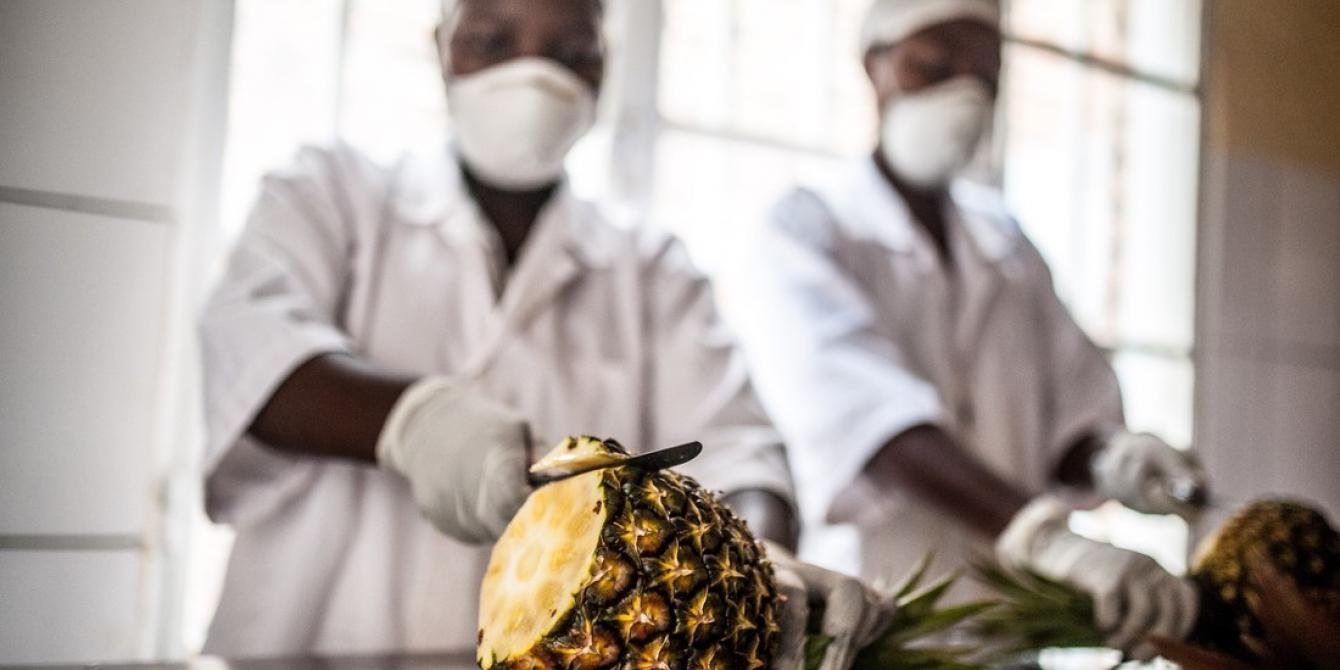Pineapples improve women's livelihoods in Rwanda

Theresie Nyirantozi lives in Kirehe district with her husband and her five children. They own more than two hectares of land where they grow organic pineapples and sell through a successful local cooperative, Tuzamurane, of which she is a member.
But her story was different before joining the cooperative. She used to grow sweet potatoes, beans and cassava for subsistence but the harvest was never enough for family consumption. She had difficulty meeting other family’s needs like a medical insurance, school fees for her kids, clothes, and soap.
She then learned about growing pineapple and the potential of joining the cooperative. She started by growing regular pineapple and selling them at the market, but she was getting very little money for the produce. Theresie then decided to adopt organic farming and join the Tuzamurane cooperative.
Adding value
Tuzamurane is a Cooperative of organic pineapple growers in Kirehe District. Since 2012, the cooperative has been in a partnership with Oxfam benefitting from the Enterprise Development Programme (EDP). The cooperative comprises of 133 members, more than half being women.
At the beginning of its operation, Tuzamurane was facing multiple challenges including limited knowledge of agricultural best practices, lack of access to a market for fresh pineapple, the unreasonably low price of produce (Rwf40/kg), and lack of improved seeds.
With technical support from Oxfam and in partnership with the National Agriculture and Export board, Tuzamurane can access more working capital, to venture into growing organic pineapple, to acquire equipment to dry pineapples, to get certification of producing dried pineapples and access an international market for export of dried pineapples.
Members of the cooperative are benefitting immensely from the expansion of the cooperative’s activities including increasing their income, supporting other community members and acquiring more knowledge on organic agricultural practices.
Theresie, for example, has managed to sell her produce four times more than what she was getting at the market. She borrowed some money from the cooperative to buy the equipment she needed to meet all requirement of organic farming and renovate her house. She has become the main breadwinner of the house and she is happy that her kids can afford medical insurance and have their school fees covered. She believes she can now lead a happy and quiet life in her old age thanks to her pineapples!

 Follow us on Facebook
Follow us on Facebook Follow us on Twitter
Follow us on Twitter